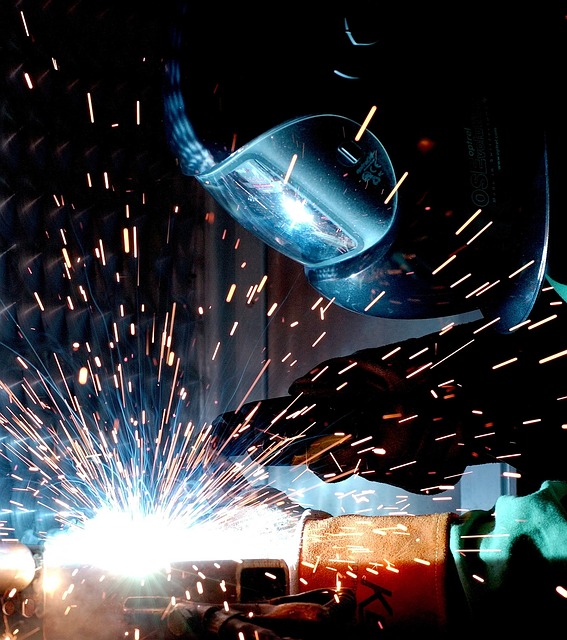The current situation
 Industry 4.0 brings essential changes to the labour market, requiring new skills. Currently, there are not enough qualified employees to effectively implement new technologies (e.g. application of integrated management, sustainability approaches, risk-based thinking techniques, integrated manufacturing systems, collaborative robots, ML/AI, etc.). Studies show that advanced skills are lower in Visegrad countries compared to frontrunners. Many domestic firms lagged in the integration of Industry 4.0 and confirmed the lack of a skilled labour force as one of its main barriers. Also, multinational corporations operating in the V4 with developed and implemented Industry 4.0 strategy point out the lack of skilled labour force in the labour market. Quality management is one of the most critical areas where skilled employees are necessary. Quality 4.0 refers to the modern approach to quality and organizational excellence within Industry 4.0. Quality professionals are vital in leading organizations to apply old quality methods to new, digital, and disruptive technologies. Managing quality in modern enterprises requires both technical and managerial competencies. Therefore, cooperation between economic and technical universities is necessary to develop high-quality courses and improve the competencies of lecturers and then students. This includes extensive communication with enterprises, applying new teaching methods, creating new courses and changing the curricula.
Industry 4.0 brings essential changes to the labour market, requiring new skills. Currently, there are not enough qualified employees to effectively implement new technologies (e.g. application of integrated management, sustainability approaches, risk-based thinking techniques, integrated manufacturing systems, collaborative robots, ML/AI, etc.). Studies show that advanced skills are lower in Visegrad countries compared to frontrunners. Many domestic firms lagged in the integration of Industry 4.0 and confirmed the lack of a skilled labour force as one of its main barriers. Also, multinational corporations operating in the V4 with developed and implemented Industry 4.0 strategy point out the lack of skilled labour force in the labour market. Quality management is one of the most critical areas where skilled employees are necessary. Quality 4.0 refers to the modern approach to quality and organizational excellence within Industry 4.0. Quality professionals are vital in leading organizations to apply old quality methods to new, digital, and disruptive technologies. Managing quality in modern enterprises requires both technical and managerial competencies. Therefore, cooperation between economic and technical universities is necessary to develop high-quality courses and improve the competencies of lecturers and then students. This includes extensive communication with enterprises, applying new teaching methods, creating new courses and changing the curricula.
Our contribution
The main limitations to solving described problems are incomplete knowledge about the Quality 4.0 skills required by the enterprises, lack of teaching materials describing the modern methods, limited and sometimes outdated competencies of lecturers, maladjustment of teaching methods to disruptive technologies and Generation Z students. Studies on industry 4.0 enterprises are too general when presenting quality 4.0 competencies. A more detailed analysis is required to enumerate all the necessary skills. Available books on quality management teach old methods. Some of them were created over 50 years ago. Their potential is not enough to efficiently manage quality in the modern enterprise. The new textbooks and materials are necessary to describe modern methods, including disruptive digital technologies. The next step should be improving the skills of lecturers so they can teach those new quality management methods and teaching approaches. It is not adequate to teach Generation Z students with old teaching methods. Therefore, it is crucial to exchange and gather new experiences, create new courses and e-courses, and use interactive methods. The project will contain all described steps. This will allow our universities to improve the competencies of graduates and prepare them better to work in Industry 4.0 enterprises.
Innovation
 University curricula are often created without extensive knowledge of the requirements of the labour market, using well-verified but outdated approaches. They are mostly limited to one area of science. That stems from a lack of resources and motivators for cooperation. This project will start with a deep analysis of the needs of Industry 4.0 enterprises. That knowledge will be used to plan seminars and study visits for lecturers to make their competencies more up-to-date. Only then will it be possible to prepare new materials and courses. They will be prepared by experienced specialists representing different areas of science. The Erasmus+ project allows teachers to visit other universities and exchange knowledge. But it is aimed at short, one-time visits without more extensive cooperation. This project assumes long-term intensive collaboration, delivering lectures and developing new materials, courses and teaching approaches. There is only a limited number of scientific studies on Quality 4.0, as the idea was coined only in 2017. The process of implementing university curricula takes approx. 5-7 years. Therefore, this project leads the way for teaching new quality management approaches not only in V4 countries but worldwide. According to the Green Visegrad rules, the project has a limited environmental impact. We limit travel to the necessary level, use only public transport, most of the communication is done using online tools, all materials are in digital version, no printing, and we use the existing infrastructure of the universities.
University curricula are often created without extensive knowledge of the requirements of the labour market, using well-verified but outdated approaches. They are mostly limited to one area of science. That stems from a lack of resources and motivators for cooperation. This project will start with a deep analysis of the needs of Industry 4.0 enterprises. That knowledge will be used to plan seminars and study visits for lecturers to make their competencies more up-to-date. Only then will it be possible to prepare new materials and courses. They will be prepared by experienced specialists representing different areas of science. The Erasmus+ project allows teachers to visit other universities and exchange knowledge. But it is aimed at short, one-time visits without more extensive cooperation. This project assumes long-term intensive collaboration, delivering lectures and developing new materials, courses and teaching approaches. There is only a limited number of scientific studies on Quality 4.0, as the idea was coined only in 2017. The process of implementing university curricula takes approx. 5-7 years. Therefore, this project leads the way for teaching new quality management approaches not only in V4 countries but worldwide. According to the Green Visegrad rules, the project has a limited environmental impact. We limit travel to the necessary level, use only public transport, most of the communication is done using online tools, all materials are in digital version, no printing, and we use the existing infrastructure of the universities.
Regional relevance
V4 economies depend more on manufacturing (PL 17%, CZ 23%, SK 19%, HU 19% of GDP) compared to the EU average (14.7% of GDP). This, among others, stems from the higher competitiveness of the labour market. Industry 4.0 is a game-changer because it decreases the relative importance of the cheap labour force, increasing the value of highly skilled employees that can use modern technologies. To maintain the competitiveness of the V4 industry, successful digital transformation of manufacturing industries is inevitable. All EU countries experience the problem. Therefore, the quick reaction in the V4 region can help even increase competitiveness in the long term. Unfortunately, the implementation of Industry 4.0 in V4 countries is lagging behind the best performers in the EU. Local Visegrad enterprises have fewer resources to buy and implement the advanced Industry 4.0 technologies. However, the same effects can be achieved with fewer resources but better educated and innovative employees. By delivering well-educated graduates, we can increase the chances of local enterprises to survive and thrive in the local, Visegrad and EU markets. Increasing the competencies of the lecturers (being also researchers) will help extend regional scientific networks and tighten ties between universities. That is necessary to create consortia able to manage the future EU projects that allow further development of Industry 4.0 in the V4 countries.
Images: WikiImages and fancycrave1, Pixabay.com
